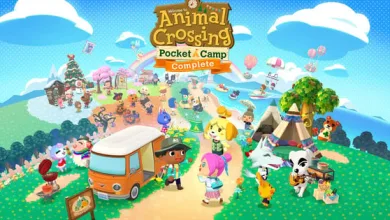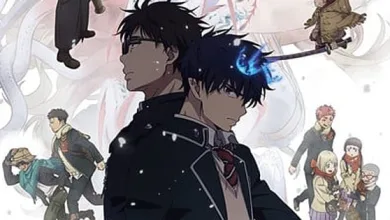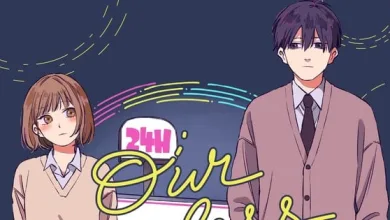Macross Delta Anime Streaming Review – Review

At last, the frayed, exhausted patience of (non-US) English-speaking Macross franchise fans has been rewarded. Apart from the 1982 original Super Dimension Fortress Macross and 1984 movie Do You Remember Love (both still held to ransom by Harmony Gold USA—boo, hiss), the entirety of the animated Macross saga is now available to stream on Disney+. That’s a lot of anime, so where should a new, potential Macross fan start? Probably not with Macross Delta, for reasons I’ll explain.
Macross Delta, including its first movie retelling and second movie sequel, are so far, the latest entries in the franchise, at times leaning quite heavily on concepts and continuity from previous shows, especially its immediate predecessor, Macross Frontier. Overall, the story mostly stands well enough alone, but the ultimate conclusion in the second movie Zettai Live!!!includes multiple integral character appearances from the original SDF Macross and Macross 7 shows. While it’s not my intention to review the movie here (Kim Morrissy already did so back in 2021, for its theatrical release), it’s worth noting that it’s required viewing for full thematic and narrative resolution. Thankfully both films are also streaming; the first, being little but a simplified recap and re-ordering of the story, can be safely skipped.
As with every previous Macross story, the three central components are transforming mecha (Valkyrie) battles, idol singers, and a love triangle. This time, the love triangle aspect is particularly undercooked, perhaps deliberately. While secondary female love interest Mirage Farina Jenius (quarter-Zentradi granddaughter of SDF Macross‘ Maximillian Jenius) initially treats the cocky, rule-flouting Hayate with disdain, she seems to gradually fall for him. At some point, she starts inexplicably blushing around Hayate but does very little to get in the way of Hayate and Freyja’s blooming relationship. Mirage’s feelings are barely on Hayate’s (or the audience’s) radar. Love triangles are meant to provoke drama, but not here. I wonder what the point of such vague lip service even was? Is chief director and creator Shōji Kawamori somehow contractually obliged to jam love triangles where they’re not needed? Sounds painful…
Thankfully, compared to Macross Frontier‘s annoying male lead, Alto, Hayate is a much more fun character. He’s a decent person, averse to killing (which is problematic when one is employed as a fighter pilot, and killing is arguably a significant component of one’s job), and with enough of a reckless streak that he’s never boring to watch. He’s legitimately thoughtful about Freyja, especially regarding the sweet present he organizes for her fifteenth birthday. We understand why Freyja falls head over heels for him. They exemplify the typical mutually beneficial Macross bond between fighter pilot and idol singer first explored back in 1982 with Hikaru and Minmay (though with much less flightiness and needless drama).
Freyja is closer in personality to Frontier‘s Ranka Lee than Sheryl Nome – she’s very young and inexperienced but determined, peppy, and extremely cute. Hailing from the snowy world of Windermere (which, as far as I can tell, has nothing to do with the English Lake District), from her head grows a glowing pink heart-shaped “rune,” which glows and sparkles when she’s emotionally stimulated. Windermerians are short-lived people – as “children of the Protoculture,” they’re almost identical to humans, except their average lifespan is only thirty years. While this could have been an interesting concept to explore, the TV incarnation of Delta doesn’t do that much with it, leaving the more serious implications for the second movie.
Windermerians are obliged to settle down and start having children in their mid-teens – fourteen-year-old Freyja ran away from home to avoid being married off by the town elder! By default, most Windermerians of Freyja’s age are already orphans, which is quite a dark piece of world-building. As Windermerians age, they begin to “crystallize,” with whitish patches appearing on their skin, this process accelerating due to extreme stress or effort. It’s hard to imagine how modern society might function if every adult died at thirty (shades of Logan’s Run…), and Windermere’s culture is portrayed as mostly agrarian, almost medieval… apart from the massive flying sci-fi castle spaceship and fighter jets in the skies.
Much to Freyja’s dismay, the Windermerians become Delta‘s main antagonists; unfortunately, they make for underwhelming enemies. The Aerial Knights, the Windermere equivalent to Delta Flight, are comprised of a group of terminally dull, bickering, neon-colored-hair boy band wannabes who spout cliched dialogue and endless unintentionally ridiculous lines about “wind”, like “you’ll feel his wind in your face”, which sounds gross. Their king is an ineffectual kid with long floppy hair and glowing runes who sings like stoned castrati, his sonorous tones traversing the galaxy via wormhole magic to mind-control his enemies. I know this is marketed as sci-fi, but by this point, Macross has devolved into daft fantasy and obtuse mysticism.
Macross has always been about the power of music to overcome cultural differences (or even introduce the concept of “culture” to races without one) but with the added complications of “fold waves,” “fold receptors,” “fold bacteria,” and all sorts of other technobabble gobbledegook, it now seems that music and idol singers can achieve just about anything the writers want them to. Freyja and her Walküre friends glow with magical power as they sing, and they can even be heard on distant worlds and ships despite barriers like the vacuum of space and the sound barrier being, you know, a thing. The over-complication of Delta‘s singing mechanics makes later plot developments hard to swallow, especially when competing types of singing are introduced, and we’re somehow expected to accept the wildly different effects “just because”.
Sadly, Delta‘s plot is an absolute mess. While Frontier took a while to get started but accelerated towards its end with an incredible final run of eight or so intense episodes, Delta spits and stutters continually, peaking in the middle and then getting lost in the weeds. By the time its inevitable climax arrives, it’s too little too late. Part of the problem is long, boring interludes on Windermere with the cast of dull villains – it’s no wonder the recap movie surgically extracts the vast majority of those scenes. As a counterpoint to the space-set Frontier, Delta was instead supposed to focus on a fixed planet setting – which is the case until the second half of the show when it jets off into space again – sadly with no fixed destination. This is where the wheels fall off the story completely, and it meanders hopelessly, even becoming boring.
Delta doesn’t only feature too many poorly-developed villains – having five pop idols this time is overkill (seven if you include the other two former Walküre members seen in flashback). While they’re all fun, and I like their characters and designs, none get much time to breathe, which takes away from time that may be better spent with Freyja and Hayate. While purple-haired and mysterious Mikumo’s voice actress has a stunning singing voice, easily overpowering her colleagues, her character’s increased prominence in later episodes seems to almost come out of nowhere, so poorly is her plot development integrated.
I have a few complaints about the music, however. While Delta’s score isn’t quite as essential as Frontier‘s Yoko Kanno-composed masterpiece, the large selection of upbeat idol tracks (two OPs and ten EDs) are generally great. Freyja’s bright and joyful ending track Rune ga Pikatto Hikarittara has grown on me, and the first opener Ichido Dake no Koi Nara is iconic; its later reprises during battle scenes are particularly epic. While Delta does feature a few truly spectacular space battles, most of its action is more Top Gun-style plane-on-plane battles, which feels to me like a step down from Frontier‘s much larger set-pieces.
While the central couple of Hayate and Freyja are easy to root for, Macross Delta‘s muddled, unfocused story hampers the overall viewing experience. Viewed alone, despite resolving its main conflict, the 26-episode TV series also feels narratively incomplete, requiring the superb second movie for a true conclusion. The grades below should be interpreted in isolation, regarding only the TV show itself, without the movie’s contribution.
Source link
#Macross #Delta #Anime #Streaming #Review #Review



